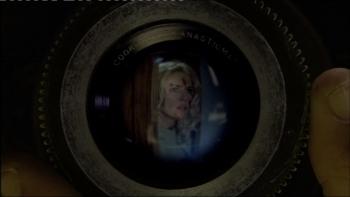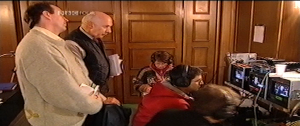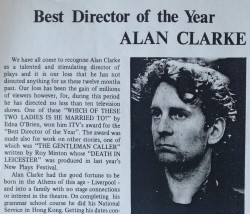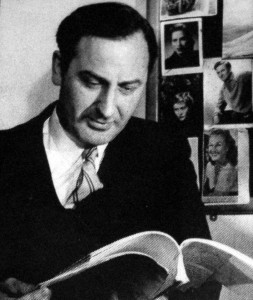by NEIL SINYARD
Writer: Gwyneth Hughes; Based on (book): Donald Spoto, Spellbound by Beauty; Producer: Amanda Jenks; Director:Julian Jarrold

There is a compelling moment in Strindberg’s The Father when a doctor is recalling a production of Ibsen’s Ghosts and being dismayed by Mrs Alving’s vilification of her late husband. ‘I thought to myself,’ says the Doctor, ‘What a damned shame the fellow’s dead and can’t defend himself!’
I felt a bit like that whilst watching the BBC/HBO production The Girl,1 Julian Jarrold’s film about the deteriorating relationship between Alfred Hitchcock and his new discovery Tippi Hedren during the making of The Birds (1963) and Marnie (1964). Dramatic characterisation comes perilously close to character assassination. Jarrold’s previous TV piece, the award-winning Appropriate Adult, was also rooted in reality and had certainly confirmed his aptitude for exploring the dark side of human personality; and The Girl is a powerful and progressively harrowing film about sexual harassment, psychological cruelty, and the abuse of power.2 I think the two leading performances are superb. Toby Jones’s mimicry of Hitchcock is masterly, but he also probes to the melancholy behind the façade; and Sienna Miller likewise conveys a tough and courageous resilience beneath the actress’s surface elegance. At the outset, however, the film claims to be based on extensive research (though there is no mention of Tony Lee Moral’s richly detailed book on the making of Marnie3 ) and thus is purporting to be an accurate account of events. On the level of veracity rather than drama, the film becomes more problematic.



